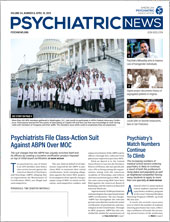Near midnight on a Friday in 2003 in Texas, Deanna Laney attempted to lock her sleeping husband in their bedroom. She then took her 8-year-old and 6-year-old sons outside and killed them by bludgeoning them with heavy rocks. She severely injured her toddler son in the same manner. Up until then, she had been a loving mother to her sons, whom she had home-schooled.
The deeply religious 39-year-old mother said she had been hearing the voice of God telling her that the apocalypse was near. Command hallucinations told her to kill her sons to prove her faith in God. She believed that she and Andrea Yates (who had previously killed her own five children) were chosen by God to bear witness to the imminent end of the world. After resisting commands for strangulation and stabbing, she tripped over a rock and concluded that she should bludgeon the boys. She believed that by denying God’s earlier instructions, she was being instructed to kill the boys in more brutal ways. If she did not obey God’s commands, she thought she would go to hell. She also believed that she needed to keep the murders secret, just as the Virgin Mary had kept her pregnancy secret.
Laney had a history of experiencing a psychotic episode three years earlier, with “delusions of reference, olfactory hallucinations, choking sensations, intense fear, and a change in sleeping habits.” Several weeks after the murders, she began taking antipsychotic medications, and only then did she recognize the enormity of what she’d done and experience loss and regret. She was diagnosed with delusional disorder, grandiose type.
After being found not guilty by reason of insanity at trial, she was psychiatrically hospitalized. Her surviving son suffered permanent brain damage from the attack. Her husband divorced her and later remarried.
In 1969, Phillip Resnick, M.D., reviewed the world literature and categorized five motives of parents who kill. The first, altruistic filicide, is murder out of love, regardless of whether it is in the context of psychosis. The loving parent believes that the child is better off dead—either because that parent is planning to die by suicide and would not leave the child abandoned in the world or because that parent believes the child is going to suffer (for example, because of psychotic beliefs that the child would be kidnapped or tortured).
An acutely psychotic filicide, in distinction, occurs when a psychotic parent kills with no comprehensible nonpsychotic motive. In unwanted child cases, the murdered child is seen as a hindrance to the parent’s goals or desires (such as to marry someone who doesn’t want children). In partner revenge, the parent kills the child as an attempt to punish his or her (usually ex-) partner and make that person suffer; this usually occurs in the context of child custody or divorce proceedings. The most common motive for a parent killing a child, however, is fatal maltreatment (severe neglect or abuse).
Forensic psychiatrists see the aftermath of filicide cases and may be tasked with evaluating the parent’s sanity at the time of the act. In our study of women found not guilty by reason of insanity for killing their children in two states, we found that these mothers commonly were experiencing command hallucinations. Altruistic goals were the most common motive among women who were found insane.
General psychiatrists have the greatest opportunity to evaluate patients before such acts and possibly intervene to prevent them. It is important to be aware of whether a patient is a parent and what supports they have in place. Psychotic parents should be asked about any delusions involving their children. Depressed and psychotic parents should be asked about their fears or thoughts about harming their children. Suicidal parents should be asked whether they are thinking of taking their children with them and what they think would happen to their children afterward. ■

